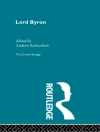Some devastation has struck the soul and the Earth alike, and in Enola Gay, his second volume of poems, Mark Levine surveys the disaster. Here is a volume of poetry approaching Carolyn Forche’s The Angel of History as a stark meditation on Blanchot’s sense of writing as the ‘desired, undesired torment which endures everything.’
Levine engages the traditional resources of lyric poetry in an exploration of historical and cultural landscapes ravaged by imponderable events. Enola Gay’s ‘mission’ can seem spiritual, imaginative, and militaristic as the speaker in these poems surveys marshes and fields and a land on the edge of disintegration. Levine sifts the psychological residue that accumulates in the wake of unspeakable acts and so negotiates that terrain between the banality of language and the need to stand witness and to speak.
Levine’s stunning second book, with its grave cultural implications and its surveillance of a distinctly postmodern malaise, offers multiple readings. Here are compact poems with uncanny power, rhythm, and a strange, formal beauty echoing and renewing the legacy of Wallace Stevens for a new era.
Some devastation has struck the soul and the Earth alike, and in Enola Gay, his second volume of poems, Mark Levine surveys the disaster. Here is a volume of poetry approaching Carolyn Forche’s The Angel of History as a stark meditati
Table of Content
Then for the Seventh Night
Eclipse, Eclipse
Susan Fowler
Horizon
Combinations
Jack and Jill
Counting the Forests
Lyric
Hello
Lyric
The Response
Place
My Friend
A Harvest
Two Springs
Ocean
Lullaby
Event
Island Life
Everybody
Riddles of Flight
Lyric
Enola Gay
The Holy Pail
John Keats
Lyric
Unlike Graham
Winter Occasional
How Pleasant to Know Mr. Lear
By Edward Lear
Forgetfulness
A Focus on the Elemental Oven (Six Moments)
New Song
Jean Cocteau
Moon Mistaken
Chimney Song
Light Years
The Fixed Wing
Elegy (Terence Freitas)
Lyric
Wedding Day
About the author
Mark Levine is author of Debt, Jorie Graham’s selection for publication in the National Poetry Series in 1993. He has received a Whiting Writers Award and a fellowship from the National Endowment of the Arts. In 1994-1995 he was the Hodder Fellow in the Humanities at Princeton. He teaches at the University of Iowa Writers’ Workshop. As a contributor to The New Yorker and Outside, Levine has reported on cultural, environmental, and social issues on four continents.












